- 한국어
- English
- 日本語
- 中文
- العربية
- Español
- Français
- Deutsch
- Pусский
- Tiếng Việt
- Indonesian
By Honorary Reporter Ayushi Kharayat from India
Female authors of modern Korean literature have significantly shape their country's literary culture, especially in the last century. They brought their unique perspectives on themes like identity, social pressure and the constraints of gender roles in Korean society.
To mark World Book Day on April 23, here are my six favorite female authors of modern Korean literature.
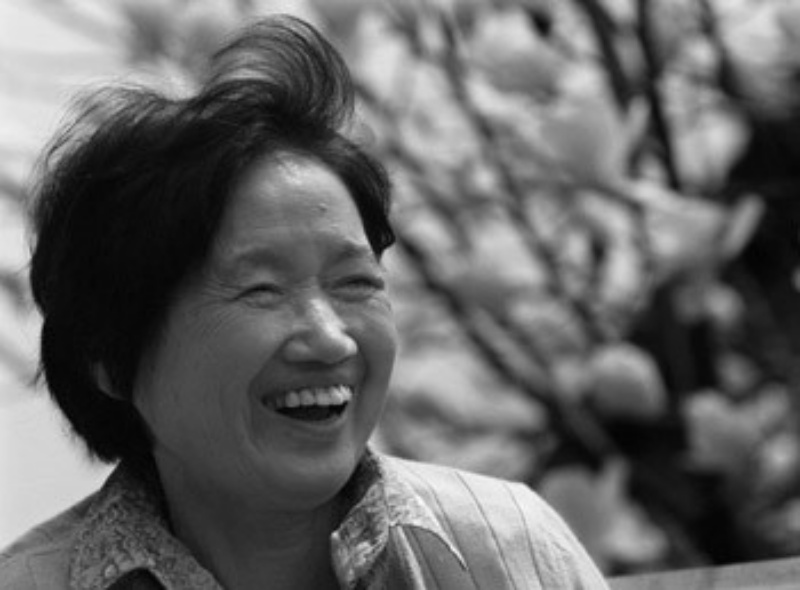
This photo is of author Park Wan-suh is from 1992, when she was 61 and her famous work "Who Ate Up All the Shinga?" came out. (Korea.net)
Park Wan-suh
Born in 1931 in present-day North Korea, Park began writing in her late 30s and released her first work "The Naked Tree" in 1970. She explored social change, family relations and womanhood in Korean society. One of her most famous works is her 1995 memoir "Who Ate Up All the Shinga?" that chronicles her childhood experiences in the North and her family's struggles during the Korean War. This book was an immediate bestseller and made Park one of the country's top writers.
She was also known for her honest depictions of the challenges and pressure Korean women faced and her works inspired a new generation of feminist writers and activists. She died in 2011.
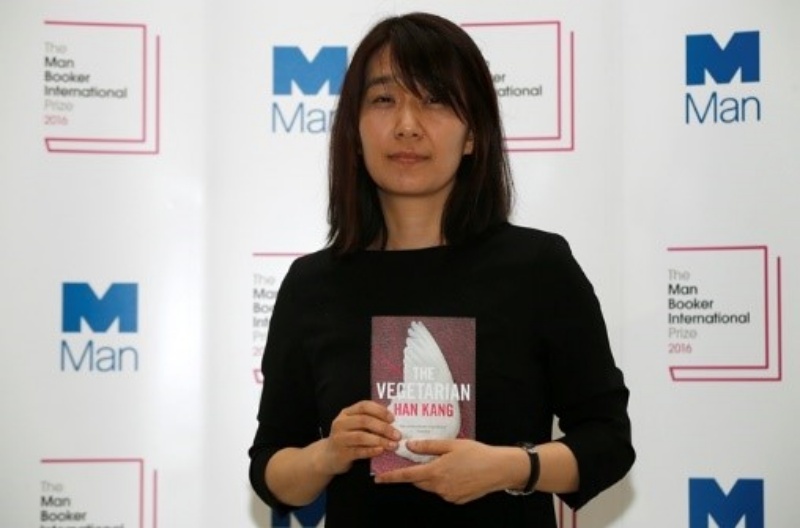
Han Kang in 2016 accepts the Man Booker International Prize for her novel "The Vegetarian." (Korea.net)
Han Kang
This writer is known for her haunting and lyrical prose. Born in Gwangju in 1970, she began her writing career in the 1990s and is now one of the nation's most famous authors through award-winning books like "Human Acts," which explores the 1980 Gwangju Uprising, "The White Book," a meditative exploration of grief, loss and the healing power of memory, and "The Vegetarian," which won the prestigious Man Booker International Prize in 2016.
Her writing is concise and precise yet emotionally resonant, and she has expressed interest in exploring the darker aspects of human nature and the impact of social expectations on individuals. Her works have been translated into over 40 languages and won numerous awards.
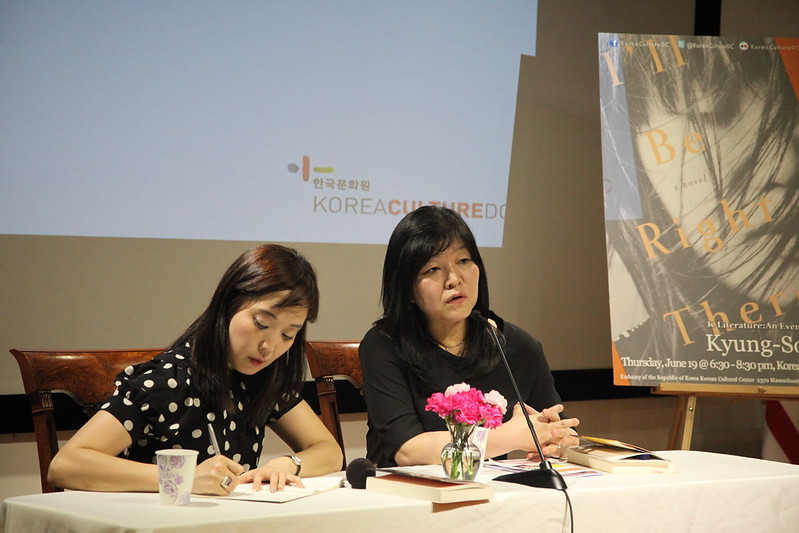
Shin Kyung-sook speaks in June 2014 at the event "K-literature: An Evening with a Best-selling Author" at the Korean Culture Center in Washington. (Flickr.com)
Shin Kyung-sook
Born in Jeongeup, Jeollabuk-do Province, in 1963, Shin has won numerous awards including the Man Asian Literary Prize and Prix de l'Inapercu (Prize of the Unnoticed). Her most famous work is the bestseller "Please Look After Mom," which covers familial relationships, motherhood and sacrifice, and her other works deal with loneliness, loss and the search for identity.
Shin's writing features sensitivity to the emotional complexities of human relationships and her ability to create vivid and nuanced characters. She is also interested in the impact of modernization and globalization on Korean society and how individuals navigate related challenges.
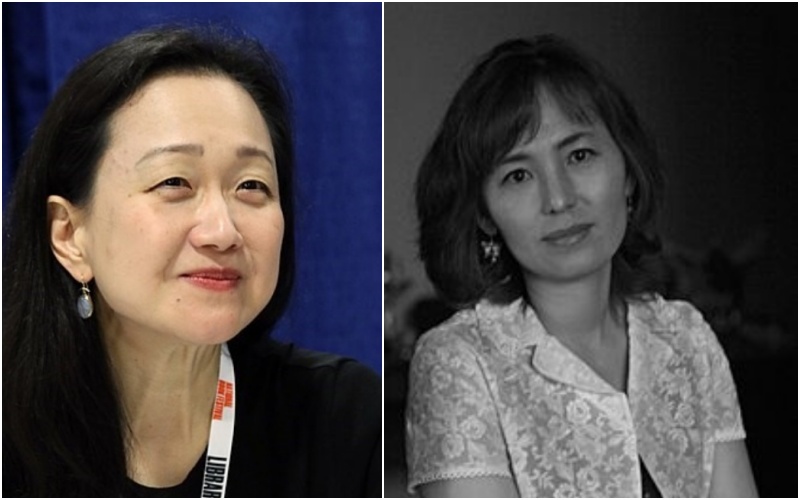
This photo of Min Jin Lee (left) is from the 2018 U.S. National Book Festival and that of Gong Ji-young (right), one of Korea’s most critically acclaimed novelists, is from 2005. (Wikimedia Commons)
Min Jin Lee
This Korean American writer was born in 1968 in Seoul but grew up in the Queens area of New York, beginning her writing career in the 1990s. Her debut novel "Free Food for Millionaires" in 2007 became a national bestseller and her second "Pachinko" 10 years later was a finalist for the National Book Award for Fiction. Lee explores the themes of immigration, identity and the Korean diaspora, often challenges conventional notions of race and ethnicity, and shows the complexities of the immigrant experience. She is also a frequent contributor to The New York Times and other publications.
Gong Ji-young
A native of Jeju Island born in 1963, Gong started her writing career in the late 1980s. Her works often deal with social justice including human rights violations and discrimination and are known for their sharp critique of Korean society. Her most famous work is "The Crucible," a novel based on the true story of sexual abuse at a school for the deaf in Gwangju. Her other works include "Our Happy Time," which explores death and suicide, and "Human Decency," a look at social justice and human rights. Her works have been translated into many languages and she has received numerous literary awards and accolades at home and abroad. Her focus on marginalized groups in Korea has made her one of the country's influential authors.
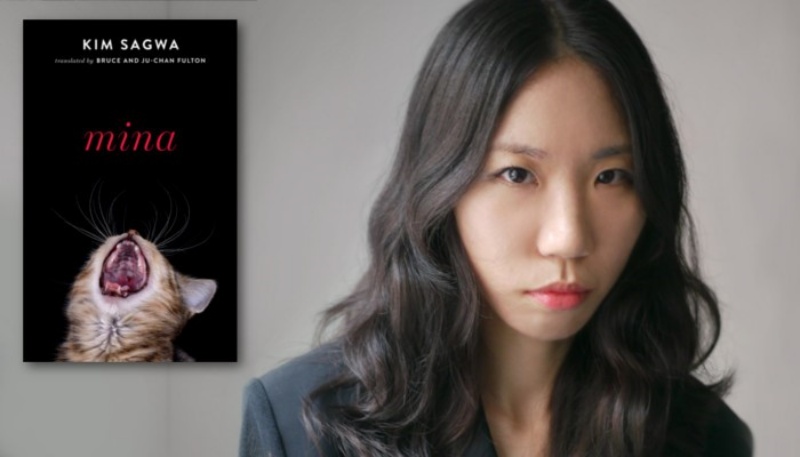
Kim Sagwa's works have been shortlisted for several major domestic awards like the Munji Prize and Young Writers Award. (2018 Litquake Festival)
Kim Sagwa
Known for her unique and unconventional writing style, this Seoul native was born in 1984 and has published novels and short stories receiving critical acclaim both at home and abroad. Her works often focus on young people in contemporary Korean society, particularly the pressures and anxieties they face in a rapidly changing world. Her novel "Mina" is about two teenage girls struggling to find their place in a country that prioritizes conformity and obedience. Her unique blend of realism and fantasy plus her sharp social commentary make her one of the most talented Korean female authors of her generation.
msjeon22@korea.kr
*This article is written by a Korea.net Honorary Reporter. Our group of Honorary Reporters are from all around the world, and they share with Korea.net their love and passion for all things.